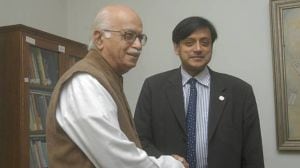Banks gear up for Euro deals
MUMBAI, JAN 3: Indian banks have lined up the first Euro deals to be struck on Monday when international markets hold their first Euro tr...

MUMBAI, JAN 3: Indian banks have lined up the first Euro deals to be struck on Monday when international markets hold their first Euro trading session.
"We have worked out our first Euro deal with a foreign bank to be struck on Monday, when the real market rates will begin to emerge," said a Bank of Baroda official. Other Indian banks are also eagerly waiting for the Euro market to get active before striking deals on their existing positions in Deutsche mark.
The Euro made its first commercial debut in India on Friday when State Bank of India and ABN Amro struck a $5 million Euro deal at the rate of $1.1740 per Euro. A few other stray deals were also reported on Friday in India as the rest of the world’s markets were closed for New Year holidays.
The Indian deal on Friday suggests that the Euro has appreciated slightly against the US dollar from Thursday’s ECU pricing at $1.168. Bankers expect a lot of volatility on the Euro over the next two weeks.
Indian banks are expected to convert most of theirlegacy currency positions into the Euro in the coming days. Liquidity in the legacy currencies will reduce substantially even though one is allowed to maintain legacy currency positions till December 31, 2001. A lot will also depend on the Reserve Bank of India’s decision on when to convert a portion of its reserves into Euro, which is expected soon.
Major Indian banks have spruced up their foreign offices to handle Euro trade for smaller Indian banks under correspondent banking relationships.
Indian banks will save on transaction costs with the advent of the Euro. Currently, each bank has at least one nostro account for each European currency and sometimes more than one. Although this will probably not change at the outset, the need for banks to hold a cash account in each member state of the Euro area will gradually diminish once their principal correspondents are able to offer a clearing service throughout the European monetary union . Indian banks will now, technically, need only one Euro accountanywhere in European monetary union countries for payments in any of them.
The big three–State Bank of India, Bank of Baroda and Bank of India–have equipped their European branches for offering speedy services in Euro for their correspondent Indian banks. Bank of Baroda, which has a branch in Brussels–the self-proclaimed headquarters of the European Union–is positioning its physical proximity to the European Central Bank and clearing system to sell its correspondent banking business.
Bank of India has equipped its Paris branch to deal with all Euro-related business, including the correspondent banking business. The bank has offered Euro-denominated services to Indian banks which already have correspondent banking relationships on the French Franc. State Bank of India will be utilising its Antwerp branch in Belgium to offer Euro-related services.
Banque Nationale de Paris (BNP) has set up a toll free Euro hotline’ at its Mumbai and New Delhi branches to help Indian corporates in all Euro relatedqueries.



- 01
- 02
- 03
- 04
- 05




























